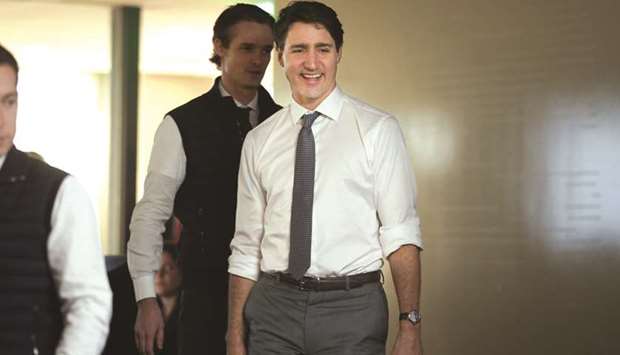A
pipeline project aimed at boosting Canada’s overseas oil sales and
reducing reliance on US buyers has pitted two provincial governments
against each other, sticking the prime minister in the middle.
The
C$7.4bn ($5.9bn) expansion of the Trans Mountain pipeline, which will
allow it to carry 890,000 barrels of oil per day from Alberta’s oil
sands to the Pacific coast for shipping overseas, was approved by Ottawa
in November 2016, and “twinning” of the 1,150km conduit is now
underway.
But a newly-elected New Democratic Party (NDP) government
in British Columbia announced last week it would block new oil shipments
through the province pending a further review of the risk of an oil
spill in coastal waters.
British Columbia is concerned that an oil
tanker leak could damage its pristine rainforest coastline, putting
commercial fisheries and tourism at risk.
The move outraged the NDP
government in Alberta, which has been forced to sell most of its oil to
the US at a discount due to a lack of pathways to other markets.
It hit back by walking out on talks to purchase electricity from a massive new dam project in British Columbia.
Federal
opposition leader Andrew Scheer on Wednesday called the interprovincial
trade row a “crisis” and urged Prime Minister Justin Trudeau to cut
short a US trade mission, return to Canada and “take control of the
situation.”
“Jobs are being threatened not only in Alberta, but in British Columbia and indeed around the country,” he said.
Trudeau told a local talk radio show during a visit last week to Alberta: “That pipeline is going to get built.”
But he equivocated when pressed about whether he would step in to end the Alberta-British Columbia feud.
“Obviously, we’re going to continue to make sure that we’re standing up for the national interest,” he told reporters.
“Canadians know that the environment and the economy need to go together.”
Boxed
into a corner, Trudeau must defend the federal approval of a pipeline
deemed to be in the “national interest” and of economic benefit to this
oil-rich country, while trying to maintain his appeal with progressive
voters who helped elect him in 2015 on a promise to slash greenhouse
gases.
That pledge would require a significant cut in Canada’s use of
CO2 emissions, and the Alberta oil sands are the single biggest emitter
in Canada.
Further riling his supporters, Trudeau’s government
unveiled a new, stricter and streamlined environmental and regulatory
review process on Thursday for pipelines, mines and other major
projects.
But that came too late for the Trans Mountain pipeline,
approved under the old regulatory framework, which Trudeau himself has
maligned.

Canadian Prime Minister Justin Trudeau speaks with AppDirect employees at the company office in San Francisco, California, as part of his three-day US tour.
